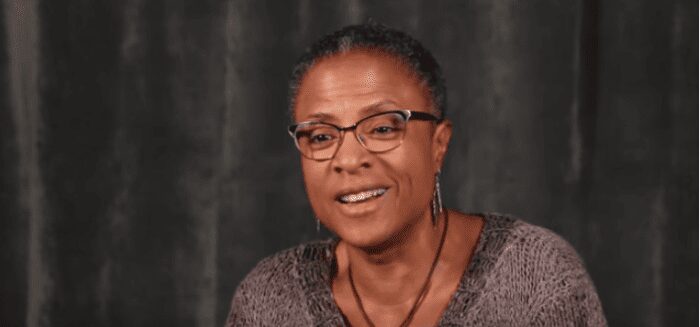Today, we continue our series on Preaching and Stewardship in partnership with Working Preacher from Luther Seminary. This week’s video is from Yvette Flunder, senior bishop of the City of Refuge United Church of Christ in Oakland, California.
Yours truly,
Adam Copeland, Director, Center for Stewardship Leaders
Yvette Flunder on Preaching Stewardship
By Adam Copeland
Stuff. When I think of stuff, my mind quickly goes to my grandmother’s house. It’s a large house full of stuff. You may know the kind. Boxes and boxes of yarn. Piles of books. Stacks of old wrapping paper. Lengths of used string too short to use again. But my grandmother, like many in her generation, grew up in a time when one could not order things at the click of a button on a magical device and have them arrive at your doorstep in 24 hours or less. Her values reflect her experience as a child growing up between the wars in a crowded, small house in a working class neighborhood.
In a recent Christian Century article, “The Joy of Stuff: Incarnation and the KonMari Method,” MaryAnn McKibben Dana reflects on rise of the KonMari method of dealing with stuff today. The method of decluttering asks one question of stuff: “Does this item spark joy?” After some fine reflections, Dana wraps up suggesting that, likely, the KonMari method may be part of a responsible approach to our consumerist culture. But, she ultimately concludes, the trick is getting back, further, to the root of stuff. The challenge for consumers is not asking, “does this item spark joy?” after we have already spent money on it, but before when we’re browsing the store, the catalog, or the Internet.
In the short video below, “Preaching Moment: Yvette Flunder on Preaching about Money,” Flunder, too, addresses the pull of consumerism and the rise of stuff. For her community, the appeal of stuff speaks into lives of transience — “you want to get it while you can get it,” she says. Flunder gets to the root of her community’s relationship with stuff, seeking to replace a narrative of poverty with new mantras: I am not poor and I’ll never be poor; I believe that I’m going to be a lender and not a borrower; I believe that I will live to see my debts paid. Like all good preachers, Flunder speaks into the real, lived experiences of her congregation and shares the gospel in a way that completely reframes the consumerist narrative so prevalent around us.
What is your congregation’s relationship with stuff? How might it be reframed in light of God’s promises? I know some congregations that have “Free Tables” in their churches, places where members are invited to place items they no longer want, but may still spark joy for others. Some experiment with the 30 Day Crazes around us and work on establishing some sort of new anti-consumerist habit for 30 days. (Have you noticed everyone is pitching 30-day plans these days? Bike to work for 30 days. Try this new diet for 30 days. How about read the Bible more faithfully for 30 days?)
No matter what practice would work best in your context, I’m certain that there’s room to explore new ways to counter the consumerism all around us. Jesus put it this way a long time ago in Matthew 6:24, “No one can serve two masters; for a slave will either hate the one and love the other, or be devoted to the one and despise the other. You cannot serve God and wealth.” For modern readers, surely that NRSV translation of “wealth” includes our obsession with stuff. We must serve God, not stuff.
More Information
Stewardship Speaker Series: Join us on campus this summer (June 16, July 21, August 18) for breakfast as we hear form groundbreaking stewardship leaders practicing distinctive, top-notch stewardship. Come to one ever – or all three! All events are free and open to the public. For more information, and to register, visit: www.luthersem.edu/stewlead.

